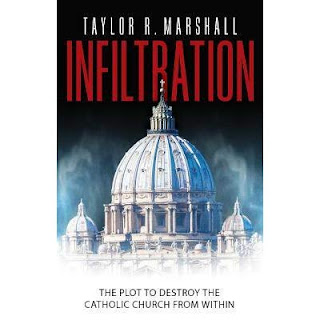Banning Porn - State, National, or Both?
In light of the moral and cultural decline in Western Civilization,
and America in particular, the debate on whether and how to ban pornography has
been renewed. Prominent personalities, such as Matt Walsh, Michael Knowles, and
Timothy Gordon, have given their arguments in favor of such a ban over the past
few weeks. Tim Gordon in particular, with his brother David, gave their
opinions on this moral issue in a recent episode of Rules for Retrogrades.
Firstly, it should be obvious that I am vehemently in favor
of banning pornography. It is intrinsically evil. It makes men stupid, weak, and
impotent animals. The fact that previous attempts to ban pornography have been
struck down as unconstitutional, as a violation of “freedom of expression,” is
a moral stain for which God shall judge America. Ironically, it’s partially
true following the logic, or rather illogic, of “liberty” upon which this
country was founded.
The above points, save for the last, are those upon which
Tim, David, and I agree. We also agree upon the foundational principle of
subsidiarity, especially as applied to government. However, I disagree with
them that banning porn should be done only
at the state level. There are several reasons which I will touch on below.
Their position is based on a confused understanding of
American history. They seem to believe and take a more favorable view to the
American Revolution, the founding fathers, and the form of the Constitution.
They seem to believe that the Constitution is essentially good as well as the
principles that guided the radical revolutionaries. They seem to embrace the
false narrative that our current crisis is because we have abandoned the “original
meaning” of the Constitution and Jeffersonian ideals.
To reiterate, I wholeheartedly embrace Catholic teaching on
subsidiarity and the role and function of government. Nevertheless, the
founding ideals of America are not
what we should go back to. The “original” meaning is not what they assume it to
be simply because the words meant different things to different people. The
crisis we have today is the full flowering of the desire for a full separation
of church and state and the tyranny of public opinion.
Tim stresses the Tenth Amendment and the position of state
nullification that Jefferson openly backed in theory. This is the position
taken by most orthodox conservatives coupled with “original meaning.” The
problem is that in practical application, the Tenth Amendment is useless as is
the entire Bill of Rights and therefore a useless appeal for a ban on
pornography at the state level.
The Bill of Rights was only proposed as an appeasement to
what many rightly saw as a grab for power by the elite. The Tenth Amendment is
a clawless kitten in light of the “supremacy” and “necessary and proper”
clauses that are defined by the national government. The Tenth Amendment is
ambiguous as to what powers the states actually have and therefore has no
effect in preventing the centralization of the national government.
Also, subsidiarity deals not only with competence but with
effectiveness. I fail to see how state only bans could possibly be effective
given the interstate nature of the porn industry. And since all such attempts
have been struck down in the past, it would have to go to the Supreme Court and
precedent overturned. Even if a state ban were to be upheld, how would they
enforce it?
In arguing for the state-only position, David uses the Prohibition
era as an example. But this is a bad analogy. Alcohol is not immediately addictive
and isn’t evil of itself (as he admits). It only becomes so with excessive
use. On the other hand, porn is both
immediately addictive and intrinsically evil. Even the secular world recognizes
the evil of child pornography and is enshrined in national law, which brings me
to my next point.
Continuing with the Prohibition analogy, David argues that
additional agencies would have to be set up in order to enforce a national ban.
This is false. As I just mentioned, child pornography is already illegal and
there are both national and local resources devoted to enforcing this law. All
that needs to be done is an expansion of the law to include all pornography and
the same resources already in place used for enforcement.
The bottom line, in my opinion, is that Timothy and David
Gordon have a tendency to edge toward a false dichotomy when it comes to the
application of subsidiarity regarding the role of the national government. The war
on porn requires all hands on deck. The local levels need the support of the
national and the national cannot be effective without the local.
Despite our disagreements, I hold them both in high esteem and am
grateful for their contribution in the effort to restore Christendom. They and
their families are both in my daily prayers.



Comments
Post a Comment